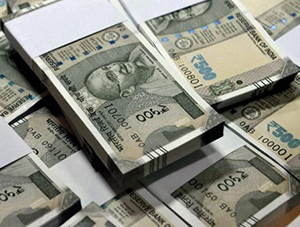Lucknow, Dec 26: Demonetisation has forced candidates to find "innovative ways to pump in black money" for campaigning which will end up making the Uttar Pradesh Assembly polls more costly, a survey has claimed.
The survey conducted jointly by Association for Democratic Reforms (ADR) and UP Election Watch to study impact of demonetisation on poll expenses said, "Demonetisation will have no impact in the campaigning or the poll expense."
In the survey, 69 per cent of the prospective candidates and party office-bearers admitted that compared to previous polls, the cost of contesting elections would rise by at least 10 per cent due to demonetisation.
Around 65 per cent of the perspective candidates said there would be no impact on the "mode and methods of luring voters" in the coming Assembly polls while 70 per cent said they would follow the old patterns to woo voters.
Traders dealing in poll materials; event managers, printers and travel agents said there would be problem in the campaigning and 70 per cent of them admitted their trade has been affected.
On cashless system, 60 per cent of the traders admitted it would have no adverse effect on their business.
While releasing the report of the survey, chief convener of ADR and UP Election Watch, Sanjay Singh said post demonetisation, a survey on its possible impact in the forthcoming assembly elections of UP was conducted in various areas and Assembly segments of the state.
The survey was conducted in 30 Assembly constituencies spread over 10 divisions of Uttar Pradesh -- Jhansi, Banda, Kanpur, Lucknow, Meerut, Varanasi, Gorakhpur, Allahabad, Agra and Bareilly.




Comments
But for BJP it does not matter because most of the BJP Leaders already gathered crores of black money with the help of Our FENKU
Add new comment